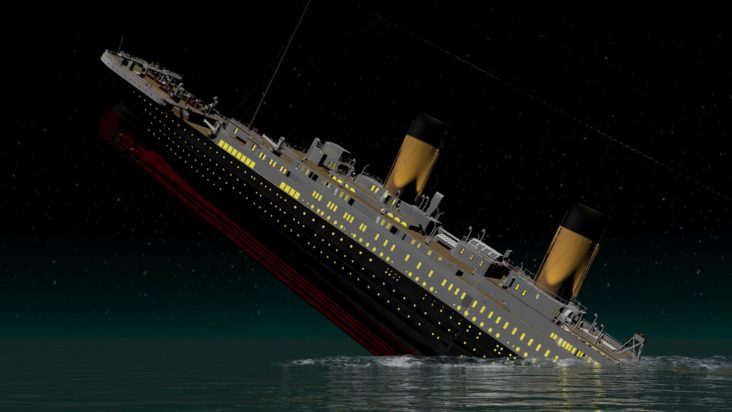A night to remember

So there we were in 1912, partying like there would be no tomorrow, but aboard all was not well. Many of the passengers resented the time it took to get from Southampton to New York – surely there was a quicker, less bureaucratic route? A passenger by the name of Fromage, a jolly chap with a persuasive manner and a deep-seated hatred of the system for having failed in its duty to make him captain, offered the convincing argument that the Titanic, if given the freedom to plot its own course, could do the journey in half the time and, by doing so, confound the nay-sayers. Who said we had to take such a round-about route? The dead hand of international maritime convention, that’s who – a bunch of so-called experts – who were evidently terrified of icebergs. But icebergs could easily be our friends; it just took a certain amount of negotiating to find a path around them, with or without their cooperation. Besides, the Titanic was unsinkable – everyone knew that. And who needed experts? They’d been known to be wrong in the past so why should we listen to them now?
The Captain had already announced this would be his last voyage, that it would soon be time for someone else to take over. But this wasn’t good enough for some of his officers, who, having also been taken in by Fromage, threatened to take over command unless a change of course was agreed. The Captain saw a way out; to put the decision to the passengers, most of whom, though far too ignorant to have a clue what was going on, would be too fearful of the consequences to actually vote for it.
And so, after much pretence at the democratic process, the day of the vote arrived. Everyone gathered together in the ballroom for this momentous occasion, leaving the bridge unattended. And as luck would have it, at that moment the ship collided with an underwater obstruction that ripped a long gash along its side.
From this point on, the fate of the Titanic was not in doubt, but it takes time for a ship of that size to actually sink. Up on the bridge, attention was immediately turned to who would become captain, since the previous one, along with Fromage and the principal leader of the revolting officers, had last been seen some way astern in a rowing boat. The arguments were heated and nobody gave a thought to what was happening to the ship. The rest of the crew busied themselves on deck, re-arranging the deck chairs, while the passengers started fighting each other over who should be thrown overboard. Some of them, having found the only working radio, had tried to call for a gigantic balloon to be dispatched as soon as possible so they could keep the ship afloat and resume their previous course, but nobody could actually remember if a balloon that size had ever been built or even if there was someone listening to their radio broadcast.
Does this story end well? At the time of writing the ship is limping along, tilted to one side. The lights are still on but nobody has yet thought about counting the lifeboats, apart from one group of passengers who have commandeered a couple with the intention of making their own way off the ship, hoping to be picked up by another passing vessel.
For 1912, read 2016. For icebergs, read China and the other world major powers. For The Titanic, read Great Britain. For Fromage, read… well you know who. And if you recognise yourself in there somewhere, you’re not alone.
